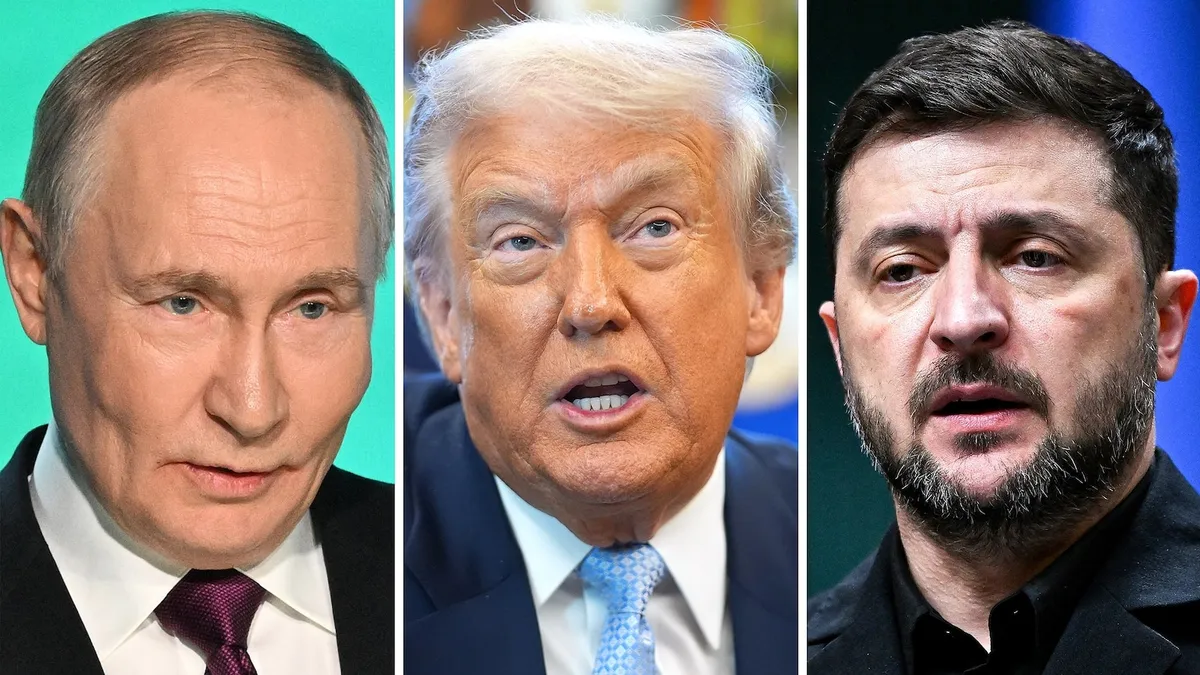
In a bold diplomatic move, President Donald Trump is urging both Ukraine and Russia to come to a peace agreement before the Thanksgiving holiday. While both leaders have indicated a willingness to engage in discussions, they have also expressed skepticism about the potential success of such a deal. Ukrainian President Volodymyr Zelenskyy has cautioned that Ukraine may soon face a challenging decision: either maintain its dignity or risk losing the support of its most crucial ally, the United States.
As pressures mount, Zelenskyy refrained from directly naming the United States but highlighted the implications of the Trump administration's demands on Kyiv. The proposed peace plan involves substantial concessions that many Ukrainians fear could lead to a de facto capitulation. President Vladimir Putin of Russia has pointed out that the deal, which Russia has had a hand in shaping, aligns with several of its core demands and could pave the way for resolving the ongoing conflict. However, he accused Kyiv of being reluctant to accept these terms.
In a stirring address to the nation, Zelenskyy vowed that he would not betray his country during these trying times. He emphasized the upcoming week would be particularly challenging, stating, “We are facing one of the most difficult moments in our history.” The President acknowledged the pressure he faces amid a significant corruption scandal impacting his administration, thereby heightening the stakes of the negotiations ahead.
Trump's 28-point peace plan includes several provisions that have been longstanding demands from the Kremlin, including a significant reduction of Ukraine's armed forces and the cession of territories not currently occupied by Russia. Despite these contentious points, the plan also assures Ukraine of reliable security guarantees, which, according to a senior U.S. official, could include a NATO-style security agreement. This would allow for a military response from the U.S. and its allies in the event of future Russian aggression against Ukraine.
Zelenskyy articulated the gravity of the situation, indicating that Ukraine stands at a crossroads: accept a complicated 28-point plan or brace itself for what could be the harshest winter yet. “We are faced with a life stripped of freedom, dignity, and justice,” he stated. He drew parallels between the current climate and the early days of the war, when he refused to abandon his post and rallied his people to resist Russian advances.
Zelenskyy recently engaged in discussions with Vice President JD Vance about the American proposals for ending the conflict. According to a readout from the Ukrainian president, they covered extensive details aimed at ensuring a dignified and effective path toward achieving lasting peace. The dialogue underscores Ukraine's commitment to seeking constructive solutions while navigating the complexities of the peace negotiations.
In a televised meeting with his national security council, Putin revealed that Russia possesses the 28-point plan and is prepared to utilize it as a foundation for a final peace settlement. He remarked that Russia had previously discussed a version of this plan with the Trump administration during a summit in Alaska earlier in the summer. Despite acknowledging certain challenges, Putin expressed a willingness to demonstrate flexibility in the negotiations.
Putin accused Ukraine of being unwilling to engage with the proposed plan, suggesting that the U.S. administration has not secured Ukraine's agreement due to its belief that it can achieve a strategic victory on the battlefield. He warned that if Ukraine continues to avoid discussions, Russia would persist in its military efforts to capture more territory. In light of this, Zelenskyy cautioned that Putin could exploit the peace talks to frame Ukraine as the obstructive party, while presenting unreasonable demands.
As the situation develops, Zelenskyy remains resolute: “There will be a constructive search for solutions with the U.S. I will present arguments, persuade, and offer alternatives, but we will not give the enemy any reason to claim that Ukraine does not want peace.” This determination highlights Ukraine's commitment to diplomacy amidst complex geopolitical tensions.